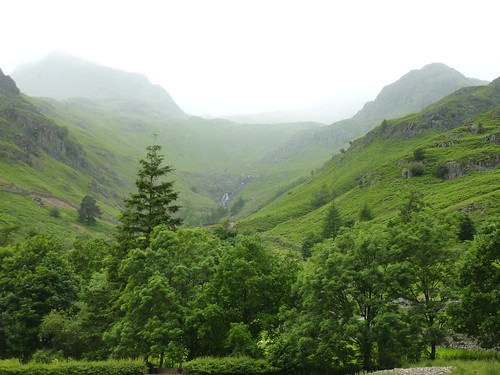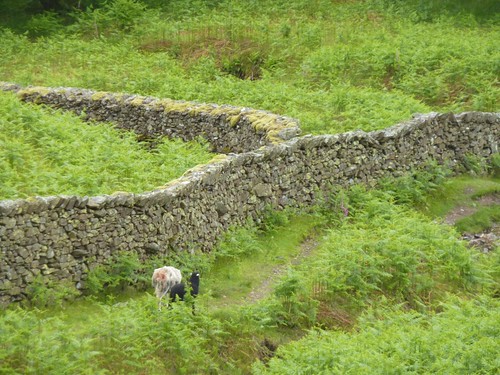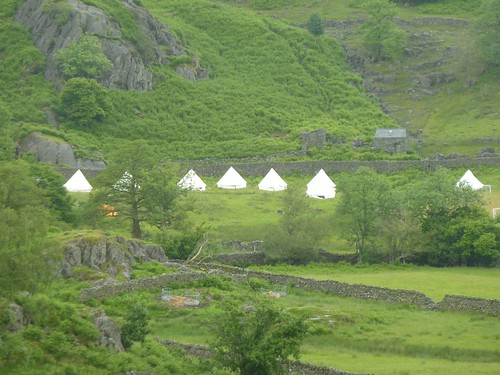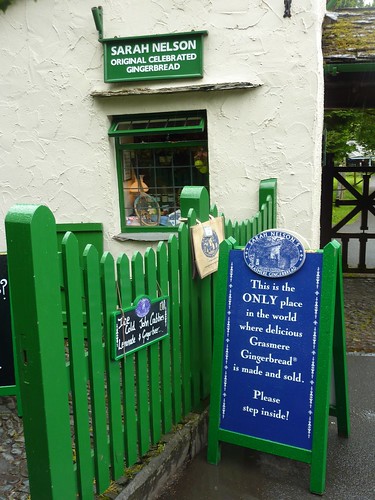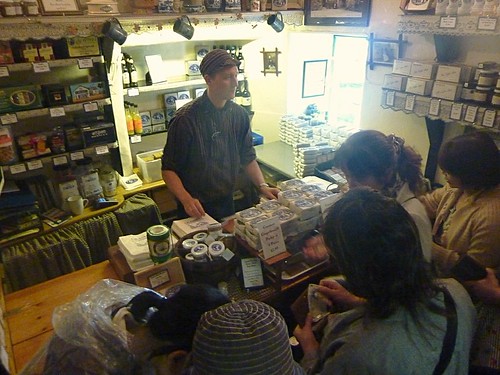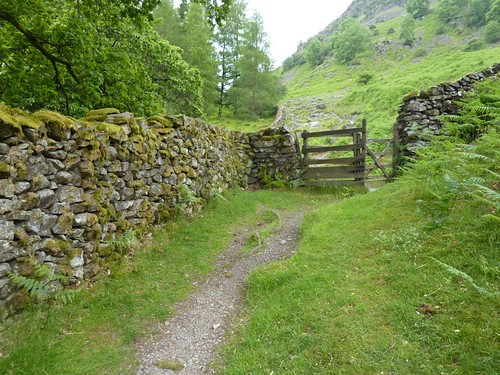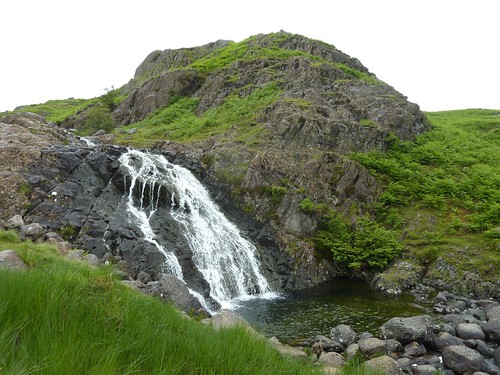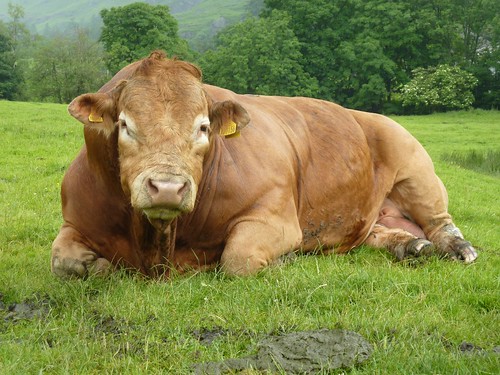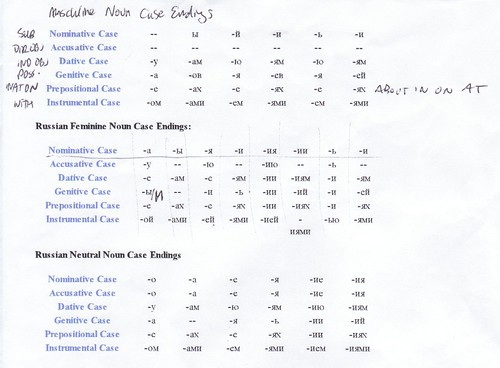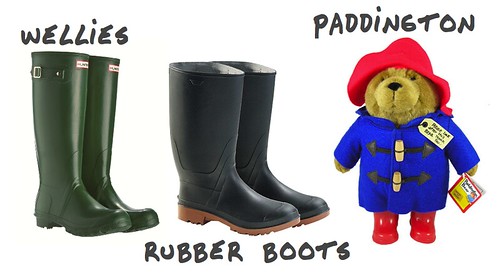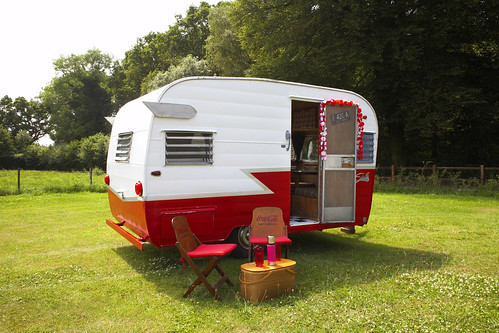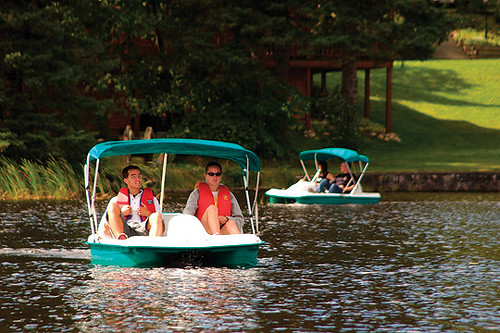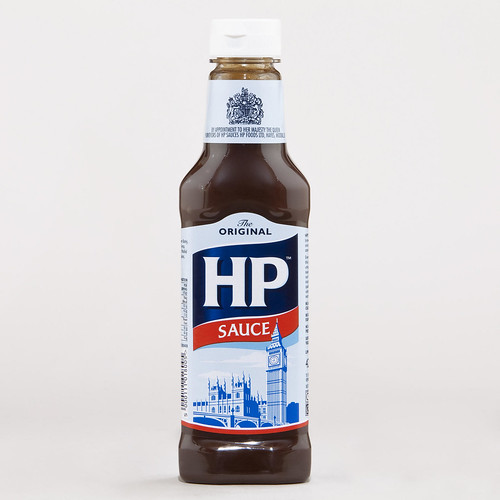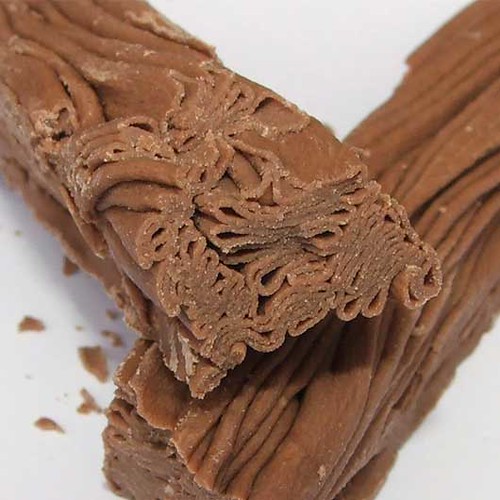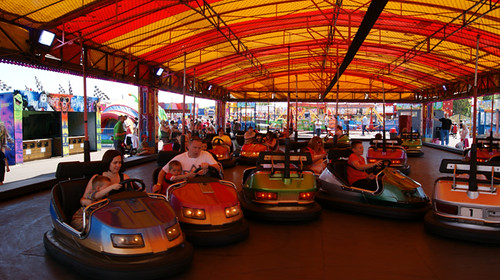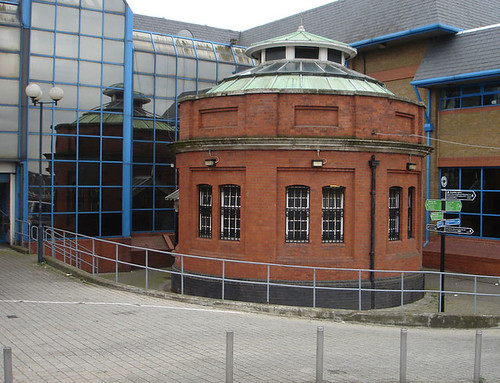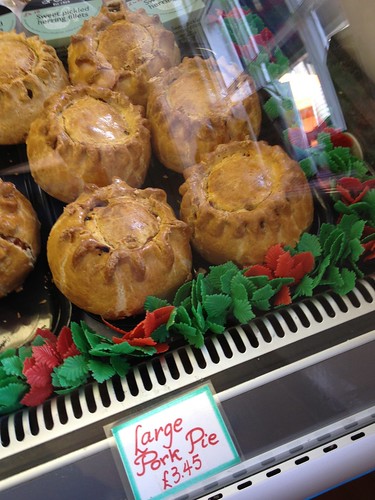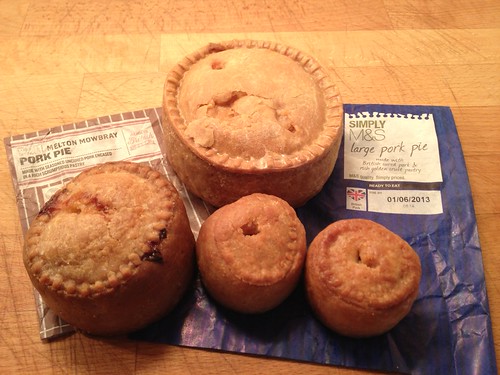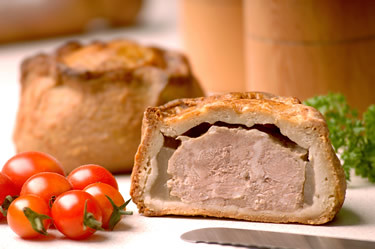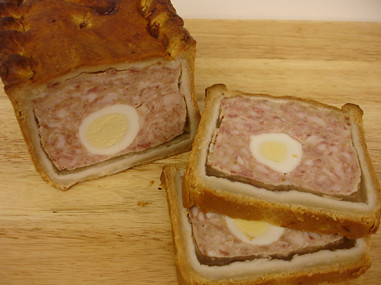It's been a good week here at Go Stay Work Play Live World Headquarters, in a few different ways. First, I finally received the letter I need in order to apply for my Russian visa, which is a huge relief. This means that in a week or so I should have the necessary bit of paper pasted into my passport that will allow me to enter the country. Also, I've settled on a new study method for the Russian language business, which feels a bit more sustainable than what I've been doing up to now. Instead of spending hours staring at long lists of words or bashing thorough hundreds of flashcards in a day, none of which seem to stick for long, I've decided that every day I'm going to concentrate on just a few words each day. Two verbs, two prepositions, and four other words. Every day. So today, for instance, is brought to you by the verbs "to be" and "to live", the propositions "on" and "over", and the words north, south, east and west.
The big thing, though, is that I've been able to get out of the city for a little break. "Break?! Break from what?" I hear you cry. "You've done nothing for weeks!" I have no good answer for this except that the waiting game was getting me down a bit, so I was casting about for a nice short trip I could take to pass the time and give me something interesting to blog about. I was thinking an overnight to Canterbury or Bath or similar, but a friend and neighbour from down the street offered a visit to his family's house in the Lake District, which was far too good to refuse. That's how I found myself sitting in a cozy kitchen in a big old stone house in a positively idyllic valley in the heart of the Lake District National Park. And though there was a predictable amount of rain that lasted for a mizzly couple of days, it was still great.
Visiting someone else's family country home was a bit funny. It reminded me in many ways of family cottages and cabins at home: the slightly musty smell of an under-used building in a damp climate, the odds and ends of furniture and decor, and the shelves of books from another time. The difference here was the vintage. Where in Canada a lakeside home might, at a stretch, date back to the 1920s, the earliest parts of this house were built in the 17th century which means it was all heavy beams and thick stone walls and wide planked floors. Just excellent.
I always thought that the Lake District was somewhere in the middle of the island, which shows how appalling my sense of English geography is. (Never mind that I also thought Blackpool was somewhere just down the coast from Brighton.) In fact, the area is most of the way up the island on the left hand side. As my host pointed out it, it's quite bumpy, meaning that the chief recreational activity in the park is what's known as fellwalking. "Fell" is the local word for a mountain, and there's no shortage of them in the park, which is England's largest and includes its highest elevation, Scafell Pike. At 978m above sea level, Scafell is not exactly Everest territory, but this is not an island given to extremes of geography.
Fellwalking is the Lake District equivalent to the namby-pamby sort of countryside walking that I've been doing in the much flatter southwest and involves long walks up and down hills on paths ranging from friendly through challenging and on to downright nasty. There are also fellrunners, who take the already challenging business of fellwalking and push it to extremes by scampering up and down ankle/leg-breaking slopes at top speed. Now that I've experienced some reasonably steep and rocky inclines I can say with some authority that fellrunning is quite simply mad.
A five hour walk on day two of my visit - in the rain, of course - took us about 9.5 miles as the crow flies but must have been at least a mile longer when the elevation was taken into account. The scenery really is magnificent, particularly when you get up high and find the small lakes known as "tarns", formed due to glaciation.
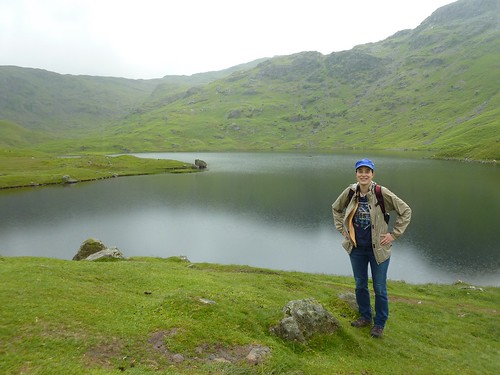
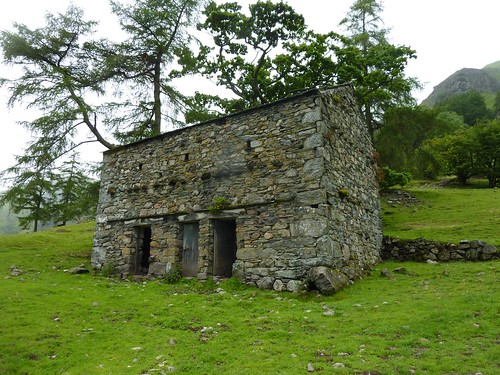
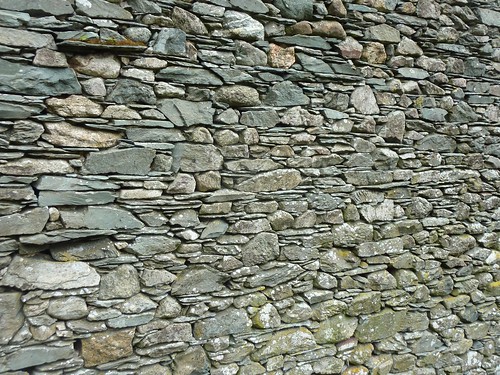
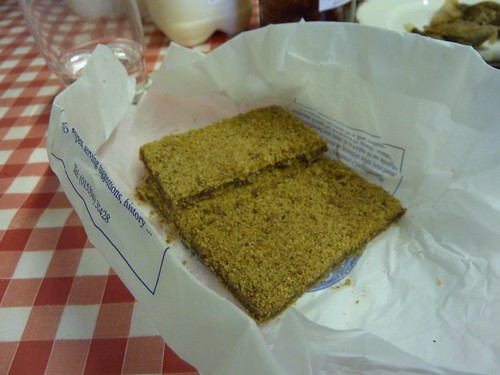
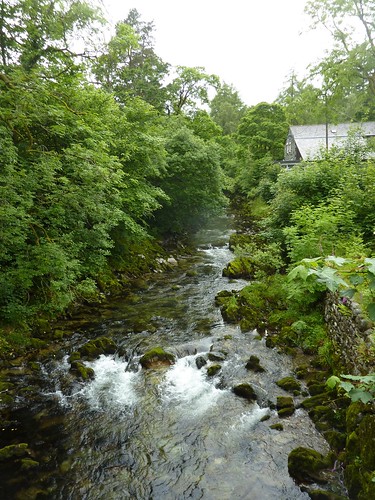
The big thing, though, is that I've been able to get out of the city for a little break. "Break?! Break from what?" I hear you cry. "You've done nothing for weeks!" I have no good answer for this except that the waiting game was getting me down a bit, so I was casting about for a nice short trip I could take to pass the time and give me something interesting to blog about. I was thinking an overnight to Canterbury or Bath or similar, but a friend and neighbour from down the street offered a visit to his family's house in the Lake District, which was far too good to refuse. That's how I found myself sitting in a cozy kitchen in a big old stone house in a positively idyllic valley in the heart of the Lake District National Park. And though there was a predictable amount of rain that lasted for a mizzly couple of days, it was still great.
Visiting someone else's family country home was a bit funny. It reminded me in many ways of family cottages and cabins at home: the slightly musty smell of an under-used building in a damp climate, the odds and ends of furniture and decor, and the shelves of books from another time. The difference here was the vintage. Where in Canada a lakeside home might, at a stretch, date back to the 1920s, the earliest parts of this house were built in the 17th century which means it was all heavy beams and thick stone walls and wide planked floors. Just excellent.
See what I mean? Idyllic, I tell you.
I always thought that the Lake District was somewhere in the middle of the island, which shows how appalling my sense of English geography is. (Never mind that I also thought Blackpool was somewhere just down the coast from Brighton.) In fact, the area is most of the way up the island on the left hand side. As my host pointed out it, it's quite bumpy, meaning that the chief recreational activity in the park is what's known as fellwalking. "Fell" is the local word for a mountain, and there's no shortage of them in the park, which is England's largest and includes its highest elevation, Scafell Pike. At 978m above sea level, Scafell is not exactly Everest territory, but this is not an island given to extremes of geography.
A five hour walk on day two of my visit - in the rain, of course - took us about 9.5 miles as the crow flies but must have been at least a mile longer when the elevation was taken into account. The scenery really is magnificent, particularly when you get up high and find the small lakes known as "tarns", formed due to glaciation.

Me, at Easdale Tarn. And no, that's not a blue carrier bag on my head, it's an impulse-buy bright blue rain hat I bought in Grasmere which, though less than flattering, made life much more comfortable.
As far as I can tell, there is an abundance of three things in the Lake District. The first is hills, as I've mentioned. The second is sheep, who can be seen grazing on the aforementioned hills all over, making for bucolic scenes aplenty and tasty local lamb. The third thing that fills the countryside is dry stone wall, which exists in such quantity (along with stone buildings) that its frankly astonishing.
A rough wall, along with a few sheep for even more local colour.
A dry stone wall is a lovely thing. It's constructed with no mortar at all - the weight of the stones and the skill of the craftsman in choosing the right stone for the right place holds everything together and keeps it together, if all goes well, for centuries. It's incredibly labour intensive, and takes a huge amount of stone. Apparently a master craftsman can build about 3 metres of wall in a day. (And lift 3 tons of stone in the process. Read about it here.) At that rate, a mile of wall would take one waller a year and a half, working seven days a week.
Look at the amount of wall in just this postage stamp bit of the area. Apparently there are 180,000 miles of dry stone wall in the UK though sadly close to 90% of it is in too poor a condition to contain livestock, unlike most of the walls I saw in the Lake District.
Luckily, stone - particularly slate - also exists in abundance in the lake country. There was even a working quarry on the other side of the valley from where I stayed that's been in operation long enough that it had big abandoned piles of scrap slate. The buildings are also predominantly stone, and were even more impressive than the walls.

Like this brilliant barn.

And the side of this house. Fantastic.
Besides tramping through a steady drizzle over hills, I also got to sample a few of the local delicacies including a particular type of gingerbread found only in the town of Grasmere. Grasmere gingerbread is a peculiar variant of the species that is only available from one tiny shop in the tiny town.
Sarah Nelson's Original Celebrated Gingerbread Shop.
This is the whole shop, filled with tourists.
Grasmere Gingerbread is like a flat rectangular biscuit that comes in pairs. You can get it in packs of 6 or 12, wrapped in greaseproof paper or in a commemorative tin. I got some in paper, for immediate consumption a the top of the next hill, and some in a tin for safe transport back to London.

It was unexpectedly dense and chewy, with a crumbly sort of topping, and bits of what might be candied ginger. Quite nice when consumed beside a tarn, or later at home with a
cup of tea. Make some yourself.
cup of tea. Make some yourself.
Besides the long walk there were other shorter walks most of which, miraculously, took in a nice pub or two along the way. This is one of the abiding pleasures of walking in this country: the place is built on such a human scale. I suppose it comes from having been so thoroughly inhabited for such a long time that the human-built bits are spaced apart in a human-scaled way. Towns and roads were established at a time when walking was the main mode of transport for most of the population, so market towns, pubs and other amenities pop up at commodious intervals. The pubs in particular are friendly to walkers and their muddy boots and drippy outerwear. It's all just, well, really nice.

A scene from a short low level amble one evening that ended with a pint of something called Sneck Lifter and a few bags of pork scratchings.
And along with the virtuous outdoor pursuits there was also a good measure of eating, reading, drinking red wine, sitting in front of fires both indoors and out, aimless chatting, crossword puzzling, and a bit of Russian memorisation. It was an excellent few days, and I'm very grateful to my host for introducing me to the Lake District, sharing his family home, feeding me, taking me to nice pubs, and shepherding me across the fells. (Thanks, Tim.)
And now a few more gratuitous pictures of lake country, because I know I sound like a broken record, but it really was lovely.


